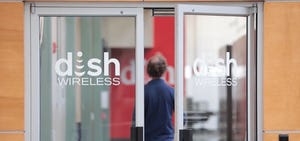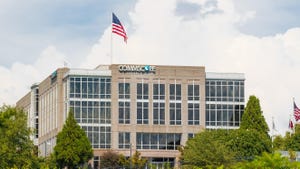Former Enron Broadband CFO Guilty
Former Enron broadband CFO pleads guilty to falsifying books and records
June 1, 2009
WASHINGTON -- Kevin Howard, former chief financial officer and vice president of finance for Enron Broadband Services (EBS), Enron's failed telecommunications business, pleaded guilty today to falsifying books and records, announced Assistant Attorney General Lanny A. Breuer of the Criminal Division and Assistant Director Kenneth W. Kaiser of the FBI's Criminal Investigative Division.
Kevin Howard, 46, of Houston, entered the guilty plea today before Judge Vanessa Gilmore at U.S. District Court in Houston. Howard pleaded guilty to one count of falsifying books and records. According to the terms of the plea agreement, Howard faces a maximum sentence of up to 12 months of home confinement at his sentencing, which will be scheduled at a later date.
According to the superseding indictment and the plea agreement, Howard knowingly and willfully directly or indirectly caused Enron's Form 10K for the year-ending 2000 to be falsified because it did not accurately and fairly reflect, in reasonable detail, the transactions and dispositions of Enron's assets.
In January 2000, Enron officially unveiled EBS to the public as Enron's newest "core" business group and announced that EBS would report a loss of $60 million for the year 2000. According to court documents, by the fourth quarter of 2000, EBS had failed to generate any significant revenue. Howard admitted that he and others at EBS and Enron knew that absent a large revenue-generating transaction, EBS would miss the announced target by a wide margin. According to court documents, while EBS had little revenue, it had entered into an agreement with Blockbuster to provide video on demand services. This agreement had anticipated future revenue in the hundreds of millions of dollars.
In an attempt to generate earnings sufficient to meet the earnings target, Howard admitted that he and others at EBS structured a transaction known as "Project Braveheart" designed to "monetize" or book a portion of the anticipated hundreds of millions of dollars of future earnings from EBS's agreement with Blockbuster in the fourth quarter of 2000.
Howard admitted that, in November 2000, he and others at EBS approached a small video on demand (VOD) technology company and asked if the company would be willing to be EBS's joint venture partner so that EBS could meet its earnings target for the year 2000. According to the plea agreement, through discussions with Howard and others at EBS, the VOD technology company understood that it would not suffer financially in any way from participating in Project Braveheart and that EBS was going to arrange for the company to be bought out of the joint venture by a third party the next quarter. Howard admitted he explained to the company that its participation in the joint venture was simply a "bridge mechanism" to get EBS into the next quarter. Based on these conversations, the company agreed to be the joint venture partner.
Federal Communications Commission (FCC)
You May Also Like










